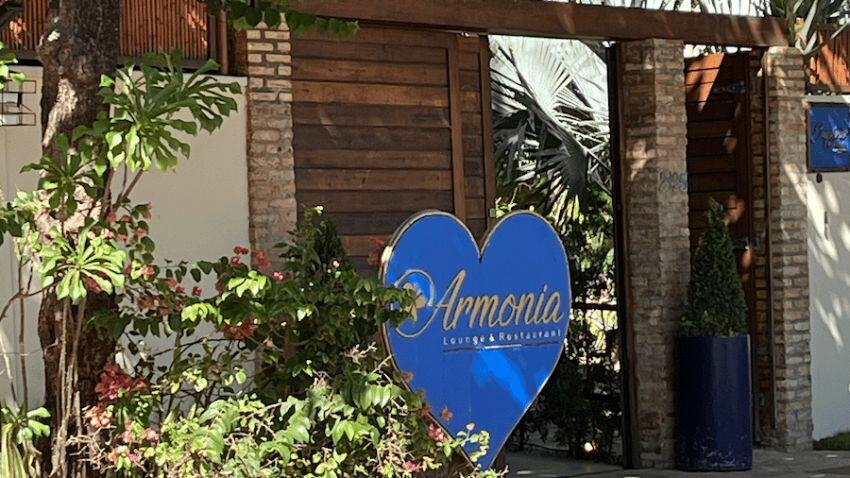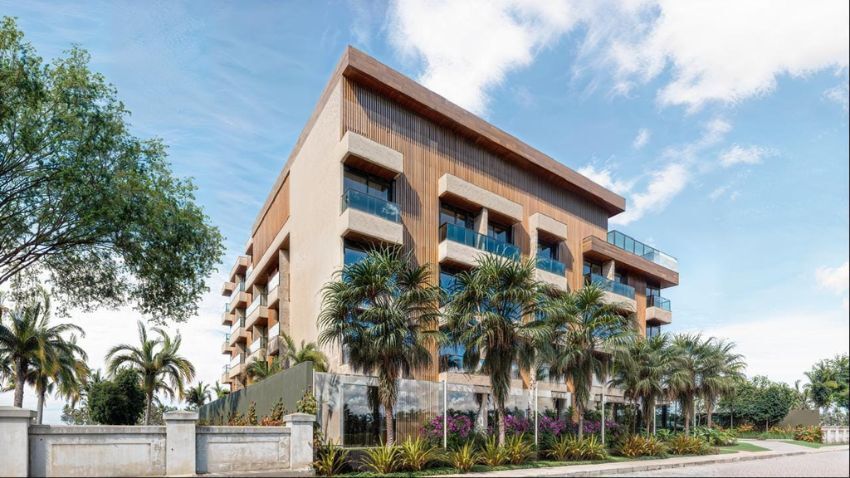Why I Own Real Estate in Multiple Countries...
Over the years, I’ve built a portfolio of real estate across numerous countries - not just as investments but as strategic tools to ensure freedom,...
4 min read
 Team Brazil Beachfront
:
October 14, 2024
Team Brazil Beachfront
:
October 14, 2024

As a first-time real estate investor in Brazil, you’ve likely got many questions about exploring this vibrant market. Understanding legal requirements, like obtaining a Brazilian Tax ID, is just the tip of the iceberg. You need to ponder due diligence on property records to guarantee clean deeds, while also acquainting yourself with the nuances of money transfers and Central Bank authorizations. But how do you select the right property, and what should you know about timing your investment? These are just a few aspects to ponder, and there’s much more to explore on your journey into Brazilian real estate.
When you’re diving into the Brazilian real estate market as a first-time investor, understanding the legal requirements is vital. Property transactions in Brazil can be complex, and ensuring legal compliance from the start will help you avoid potential pitfalls.
One of the first steps is hiring a lawyer who specializes in Brazilian real estate law. This professional will guide you through the legal process, ensuring all documentation is accurate and that the property is free of legal disputes or encumbrances.

Deeds are particularly important—they must be clean and properly registered in the seller’s name. This step is essential for a smooth transaction, as any discrepancies could lead to prolonged legal battles.
Additionally, you’ll need to secure a Brazilian Tax ID (CPF) to facilitate property transactions, along with other requirements like the RNE for banking purposes.
It’s also crucial to understand that the Central Bank of Brazil must authorize any fund transfers for purchasing property. This is a vital part of the legal process, ensuring that your investment complies with Brazilian regulations.
To successfully engage in property transactions in Brazil, obtaining a Brazilian Tax ID (CPF) is important. The CPF is a unique identification number essential for financial and legal dealings in the country. Whether you’re opening a bank account, filing taxes, or purchasing property, you’ll need this identification.
For non-residents, acquiring a CPF might seem challenging, but it’s quite straightforward. You can apply for one through a Brazilian consulate or embassy before delving into the Brazilian real estate market.
When selecting the appropriate property in Brazil, begin by concentrating on locations with robust potential for appreciation and rental income. Keep an eye on market trends and comprehend the legal and tax implications of property ownership, as these factors can greatly affect your investment.
Selecting the right property in Brazil’s dynamic real estate market requires a thorough understanding of location and emerging market trends. Cities like São Paulo and Rio de Janeiro are bustling hubs with potential growth opportunities, making them attractive for investment. However, don’t overlook emerging markets such as Florianópolis or Porto Alegre. These areas offer lower entry costs and high appreciation potential, providing unique investment opportunities.
Exploring Brazil’s legal and tax terrain is pivotal when investing in real estate. Before diving into property transactions, make sure you secure a Brazilian Tax ID (CPF). It’s a necessity for handling property tax, transfer tax, and other financial obligations.
Before purchasing a property in Brazil, confirm the deed is clean and that the property is registered in the seller’s name. You should also be cautious of any legal disputes or ownership issues that could complicate the transaction.
When investing in real estate in Brazil, confirming property ownership is an important step to guarantee a secure transaction. You need to verify the property’s deed authenticity and confirm that it’s registered in the seller’s name.
After confirming property ownership, you need to assess any legal disputes that could impact your investment in Brazil. Conduct thorough property due diligence to identify potential legal issues.
Managing money transfers in Brazil’s real estate market demands careful attention to regulations and procedures. First, you need to guarantee that your funds are transferred through an approved finance company. This step guarantees compliance with Brazilian regulations and avoids legal complications. Before initiating the transfer, open an exchange account in a Brazilian bank. This account will facilitate secure bank transfers and align with local practices.
The timing of your investment in Brazil’s real estate market can greatly impact your returns. With property demand on the rise, Brazil offers a fertile ground for first-time investors. However, it’s important to understand that strategic timing is key. By investing when conditions are at their best, you can maximize potential returns significantly.
Amid Brazil’s diverse real estate landscape, Bahia stands out as an essential option for investors seeking variety and potential. Whether you’re drawn to the state’s pristine beaches or its lush rainforest estates, Bahia real estate offers something for everyone. The region’s rich cultural heritage and natural beauty make it an attractive investment choice.
As you explore Bahia’s real estate market, it’s crucial to evaluate investment opportunities with a strategic approach. Start by examining market trends to identify areas with strong growth potential.

Exploring Brazil’s real estate market as a first-time investor can be challenging, but utilizing expat resources can provide a significant advantage. Leveraging these resources not only helps you find your way through the complex landscape but also connects you with experienced professionals who understand the nuances of real estate investing in Brazil.
Yes, Brazil’s real estate market offers strong potential for returns, especially in major cities and emerging markets. Understanding the market, legalities, and economic factors is key for success.
Rental properties in tourist areas or vacation homes can provide steady income, while commercial properties offer long-term growth potential.
Yes, US citizens can own real estate in Brazil. They need to obtain a CPF, meet legal requirements, and understand local tax implications for foreign investors.
As a first-time real estate investor in Brazil, you’ll want to guarantee legal compliance by hiring a specialized lawyer and getting your CPF early. Don’t skip thorough due diligence on property records and deeds to avoid future headaches. Understand money transfer procedures to keep transactions smooth, and always consider location and market trends when choosing properties. With careful planning and the right resources, you’re well on your way to making smart investments in the Brazilian real estate market.

Brazil Beachfront is your trusted source for uncovering the incredible opportunities along Brazil’s breathtaking Northeastern coastline. With Brazil’s economy on the rise and its middle class growing rapidly, the market offers an undeniable upside for offshore investors.
The newsletter also showcases past projects, providing readers who have purchased real estate with detailed construction updates to keep them informed every step of the way. From the lifestyle appeal of Brazil’s pristine beaches to the financial advantages of investing in this high-growth market, Brazil Beachfront delivers the insights and updates needed to capitalize on one of the world’s most dynamic real estate opportunities.

Over the years, I’ve built a portfolio of real estate across numerous countries - not just as investments but as strategic tools to ensure freedom,...

Every week, I bring you deals, insights, opportunities and off-market projects that nobody else has access to……and many of you assume it’s because I...

If you were to visit Porto das Dunas today, you would feel something that is hard to capture in photos……it feels organized.Traffic flows smoothly....